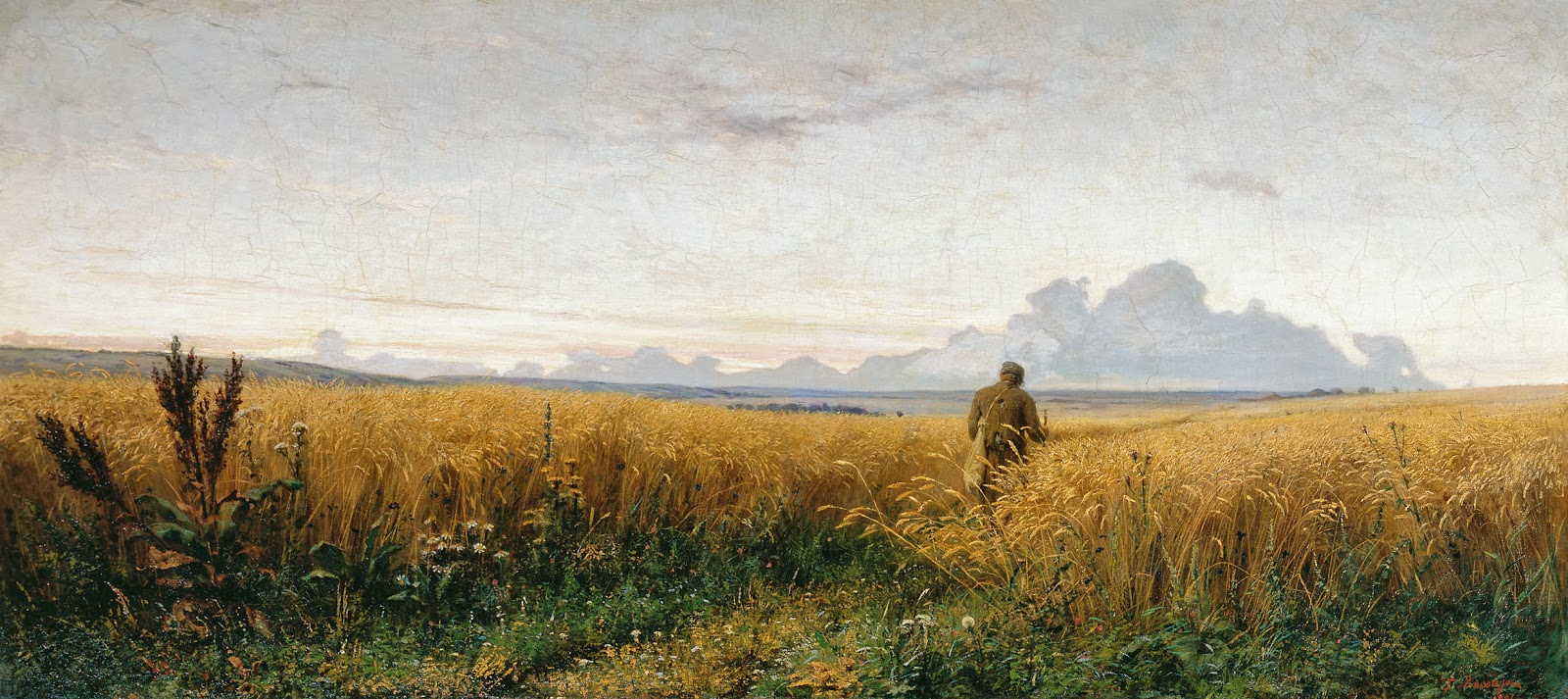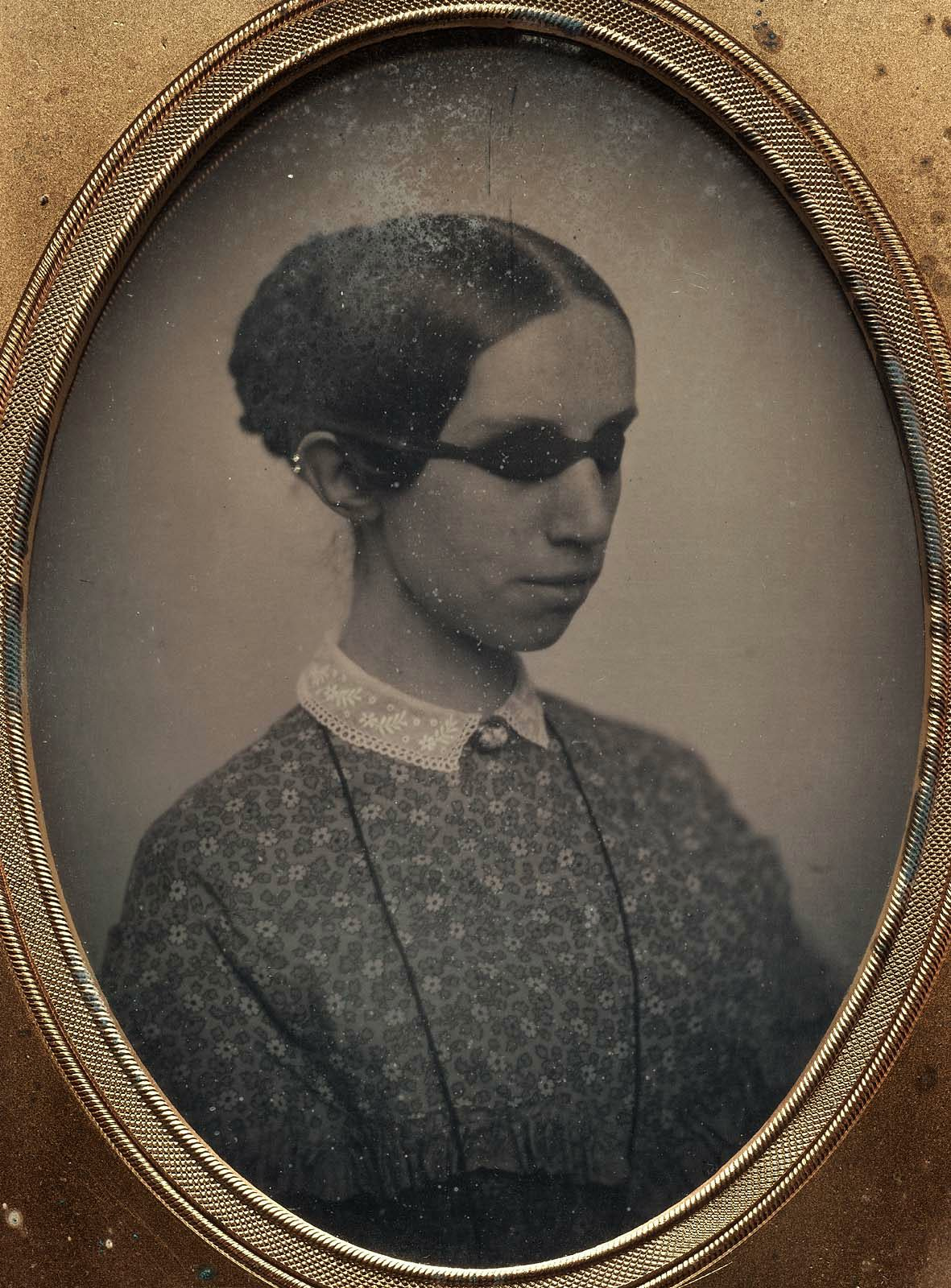 |
| "Rye", Grigoriy Myasoyedov (1835-1911), Oil on canvas, 1881 |
I love books and I'm wary of literary criticism. Some works of lit crit do a great job of putting works of literature into historical and cultural perspective, broadening our understanding of their significance. But literary criticism can also obfuscate the real virtues of a good book and only confuse and alienate readers. As we've seen frequently on The Overleaf, the most common forum for criticism is found in the introduction of a novel or short story collection in which the story is spoiled and the author of the work is derided as being overrated. This can be off-putting, and make curious readers think that the book they're about to enjoy is too complex for them to understand, turning them off completely. I guess everyone has their job to do.
This is precisely what The Overleaf seeks to address. I try to make books more accessible by demystifying them. Ideally, authors write for readers, not for critics. But now and then I come across a work of literary criticism that enhances my enjoyment and understanding of literature. So here are two books I discovered while doing research for my essays about the Russian short story. One is not so good, the other is excellent. One wades in a morass of generalities, one gets down to brass tacks about style and context.
Lectures on Russian Literature (1889) by Ivan Panin
After being thrown out of Russia as an anti-Tsarist revolutionary, Ivan Panin emigrated to Germany and then the United States in the 1870s, where he earned a Bachelor of Arts degree from Harvard and began giving lectures on Russian literature. After converting to Christianity, he became consumed with what he claimed were significant numerical patterns in the Bible that revealed a secret meaning. This volume of his lectures on Pushkin, Gogol, Turgenev, and Tolstoy (conspicuously omitting Dostoyevsky) is currently available for free, while his Biblio-numerological obsessions have fallen by the wayside.
Unfortunately, Panin is given to rhapsodic fits of purple prose that sing lofty praises of the usual suspects. He has a vague construct of the evolution of the soul and ascribes stages of the soul's development to the work of each author. Hence, Pushkin is the "singer", Gogol the "protestor", Turgenev the "warrior" and Tolstoy, "the preacher", creating a top heavy construct that parallels the development of Russian culture with man's destined journey toward God. Fair enough, but it's hardly about literature. He even uses this idea to bash venerable English writers like George Eliot, Charles Dickens and W.M. Thackeray for not being as clever and inspired as his beloved Russians. For all that, he only ever scratches the surface of their work, and his rhapsodies are unabashedly sentimental and quite frankly, corny. We can partly forgive his evangelical zeal. These great Russian books were still fairly new to American readers and he clearly wanted to get the word out, but his emphasis on rhetoric and lofty language doesn't serve his subject our our understanding very well. This book does explore and contextualize Russian literature, but only within very narrow parameters. Modern readers are likely to roll their eyes and utter a collective, exasperated, "Oh, brother!" You can give this one a miss.
Essays on Russian Novelists (1911) by William Lyon Phelps
This one has much more meat on the bone. In his day, Phelps was an immensely popular lecturer, public speaker, newspaper columnist, preacher, and later, host of his own radio show. His lectures on literature at Yale at the turn of the twentieth century attracted lots of media attention, and his rising celebrity status aroused the jealousy of his veteran colleagues on the faculty. Apparently, one hundred years ago, it was possible to parlay a career as an academic into stardom. If he were alive today, he's be doing TV commercials, have his own cooking show and a hundred thousand Twitter fans.
Phelps is also opinionated, but backs his opinions up. The excellent introduction explores how the culture, language, history, politics and geography of Russia all contribute to the singular character of Russian literature, which sets the table nicely for his commentary. While walking us through the major Russian writers, he calls out Dostoyevsky for his lack of proportion and occasional incoherence, but praises him for his many flashes of brilliance. He gives Tolstoy props for his immense contributions to world literature, but disdains the author's didacticism and (unlike Panin) questions the sincerity of the author's Christian anarchic zeal in light of his legendary egotism. He dislikes Gorki's bloodless socialist realism but admires a couple of his stories. Generally, his criticism of a given author's work serves to highlight the author's very best qualities. This is balanced, constructive and enlightening criticism--a rare thing indeed. Alert readers will soon notice that Phelps is what we in the twenty first century would call a cultural conservative, but like Panin, he was a man of his time and his somewhat myopic views about religion and morality don't detract too much from his insights. I would have loved to have had this guy as a college professor.
Phelps favors Turgenev as the greatest Russian writer, a view reflective of his era. I think that Turgenev is considered the greatest of all Russian writers by European and American critics at the turn of the twentieth century because the structure of his novels adhered more closely to established forms of Western literature than his contemporaries. Turgenev's emotional reserve and familiar templates fit European tastes better than the sprawling, prodigious, emotional styles of Dostoyevsky and Tolstoy. Since this book was first published in 1911, Tolstoy has supplanted Turgenev as the preeminent Russian novelist in many minds, and apart from Turgenev's brilliant 1862 novel Fathers and Children, his books aren't read as widely in the West as they once were. That's a shame because his novels and short stories are great stuff indeed. I would encourage anyone interested in Russian literature to read them.
As for the rest, apart from Gogol, Dostoyevsky, Turgenev, Tolstoy and Chekhov, Phelps explores a few novels by authors barely known one hundred years later, including Mikhail Artsybashev's Sanin (1907), The Red Laugh (1904) by Leonid Andreyev and The Duel (1905) by Aleksandr Kuprin (also known as In Honour's Name). Just learning of novels and authors entirely new to me made this book worth reading, and it's an ideal companion to Best Russian Short Stories, an anthology we explored at the end of my series about Russian short stories. If you want to better understand Russian literature in context, I would suggest having a look at these two books together to get a taste of some of the lesser known authors.
As always, if you read eBooks prepared by Project Gutenberg, please consider making a donation so that they can continue to do the fine work that they do in providing digital editions of books in the public domain.
_-_Geographicus_-_USAwall-mitchell-1844.jpg)
